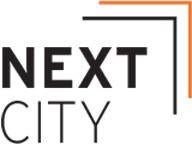Faculty News
—
Prof. Arun Sundararajan discusses metrics to measure work in the new economy
—

Excerpt from Fast Co Labs -- “Arun Sundararajan, an expert on the sharing economy at New York University, is exploring measures that would capture the quality of life factors that appear to be increasingly important to workers. 'How much would I have to pay you to do this work instead of something you love?' he says. 'In dollar terms, that is the value that someone is applying to working only 30 hours a week so that they can spend more time with their kids. It’s crude, but I see that as a way of measuring the impact more completely.'”
Faculty News
—

Excerpt from Fast Co Labs -- “Arun Sundararajan, an expert on the sharing economy at New York University, is exploring measures that would capture the quality of life factors that appear to be increasingly important to workers. 'How much would I have to pay you to do this work instead of something you love?' he says. 'In dollar terms, that is the value that someone is applying to working only 30 hours a week so that they can spend more time with their kids. It’s crude, but I see that as a way of measuring the impact more completely.'”
















